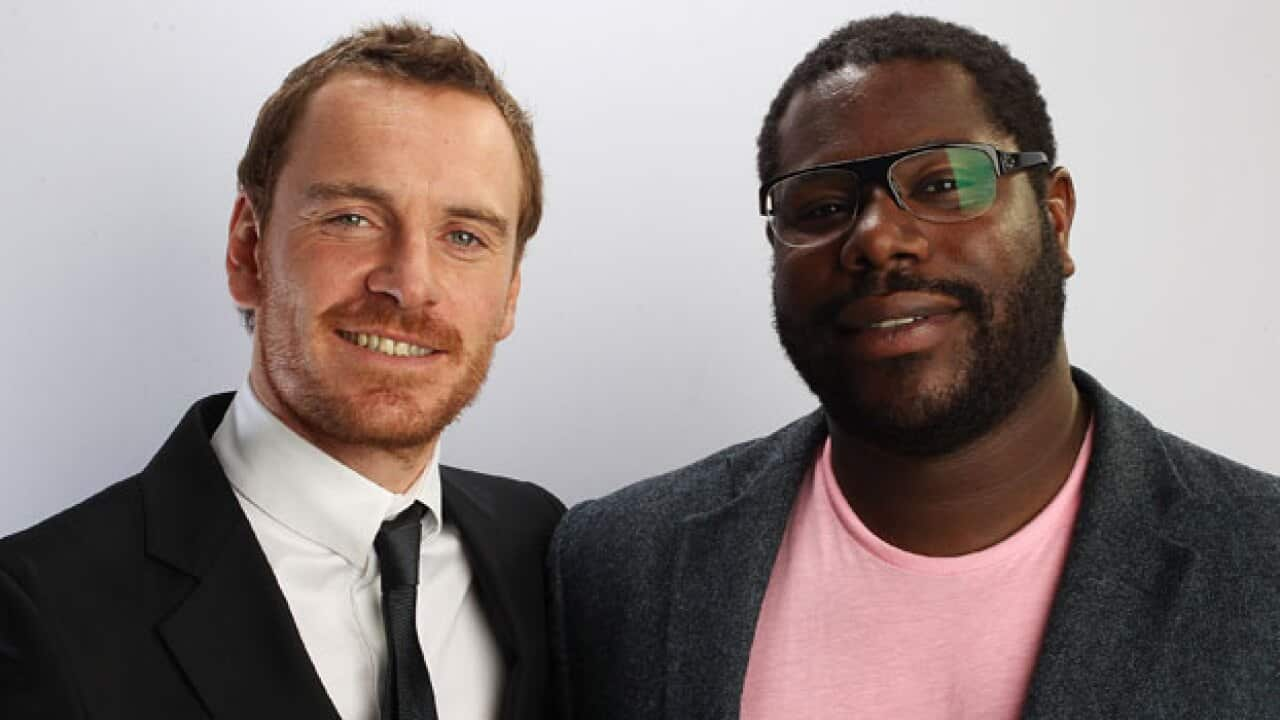In , Turner Prize-winning artist and acclaimed filmmaker Steve McQueen tackles the subject of sex addiction. The film, which sees McQueen reunite with Michael Fassbender, is the uncompromising portrait of a corporate executive whose sexual compulsions dominate every factor of his life.
Fassbender, who won the Coppa Volpi for Best Actor at the Venice Film Festival for his role of Brandon in the New York based drama, delivers an exhilarating performance opposite nuanced turns by Carey Mulligan as Sissy and James Badge Dale as Brandon's boss, David.
McQueen first told Fassbender about his idea for Shame in 2008. They had finished , their first collaboration, and McQueen “whispered” the story in the actor's ear during a dinner at Parliament House celebrating British film. “I said okay. Just tell me when and where,” Fassbender replied. “That was even before the script. In my own mind I always think the worst about what kind of situation I'm going to be in. When I got the script I was surprised. My imagination went further.”
The inspiration for Shame, says McQueen, “Started with pornography on the internet and how that related to sex addiction” but the project quickly moved beyond that narrow scope. “I was interested in the subject matter,” he says. “I just loved the idea that this addiction had something to do with another person. There's the drama. Of course, you think about Billy Wilder and The Lost Weekend but for me it was about being [in New York] and it was about the research. That's what gave us the film. I don't want to put my stencil onto subject matter. I want to be open to what it offers up.”
Shame was originally to be set in London but McQueen and his writing partner, Abi Morgan, found it impossible to research the subject at home. “It started with a conversation between myself and Abi," explains McQueen. “We both had an hour to talk and we talked for three and a half hours. From there, unfortunately, it was a situation of us not getting access in London to anyone who wanted to speak to us. It was one of those things. The wind carried us [to New York].”
Research in New York made it possible for both the writers and Fassbender to engage in the in-depth examination required to depict addiction truthfully on screen.
“New York and New Yorkers are in a special place”, says Fassbender, “Here, there is openness about these things. I had the great luck and fortune to meet someone who was suffering from this affliction. It's hard when you're asking direct questions to somebody about very personal things. I had the same experience in Hunger. People are guarded. Of course, they don't know what you're going to do when you tell their story. It's sensitive stuff. I just tried to get them to tell me stories. I found that it was a way for people to let their guards down and you start to get an idea where these motivations come from. Intimacy is such a difficult place for [Brandon] to be in. It's a place he can't control. It's a place that makes him feel scared and vulnerable and insecure.”
The role of Brandon required a complete lack of inhibition and the actor concedes it made him feel “self conscious and nervous and awkward. But I knew that it was coming,” he says. “Even before I got the script. It's about trust, really. I said [to Steve], 'Don't worry about it. You put the camera when you need to put it, we don't need to discuss this, let's just get on with it.' That's the way we went about it. The most important thing is when you're with someone else. They must not feel exploited; they must not feel you're taking advantage of them. That's where all the care and attention really has to take place.”
McQueen's intention was to make Brandon's addiction familiar rather than strange, to emphasise its place in the daily rituals of his everyday life. “I don't think I'm showing anything which is unfamiliar to anyone, really,” the director insists. “It's extraordinarily human. It's not exotic. It hasn't necessarily been onscreen in a dramatic fashion but it's not pornography. It's dealing with someone who has a condition that goes back to things that have happened to him in the past.”
Brandon's past is largely unexplained throughout the film but McQueen insists that his aim, again, was not to tantalise. “Everyone comes to the cinema with their luggage, their baggage – what they know. One doesn't have to spell out or give a yarn about what happened to Sissy and Brandon in the past. To me what is interesting is not making it mysterious but making it familiar. Allowing the audience to come here and interact with the screen; having an idea of what possibly could have happened in the past. Of course, there are lots of hints about the past in the present of film.”
A highlight of the film is Sissy singing, 'New York, New York' in its entirety. The camera predominantly rests on Mulligan, whose version of the iconic song is delivered as a blues number.
“If you look at the lyrics, “these vagabond shoes are longing to stray” – it's a vagrant,” declares McQueen. “The song is 'a blues'. It's there. What's so beautiful is that it's the first time Sissy can talk to Brandon directly, the first time in the film that Brandon opens up. It's about where they are from and where they want to go. Of course, it's about that intimacy between these two characters and also about the outer environment of New York as well. There are so many things going on in one song. It's the abstract that can actually be so crystal clear.”
